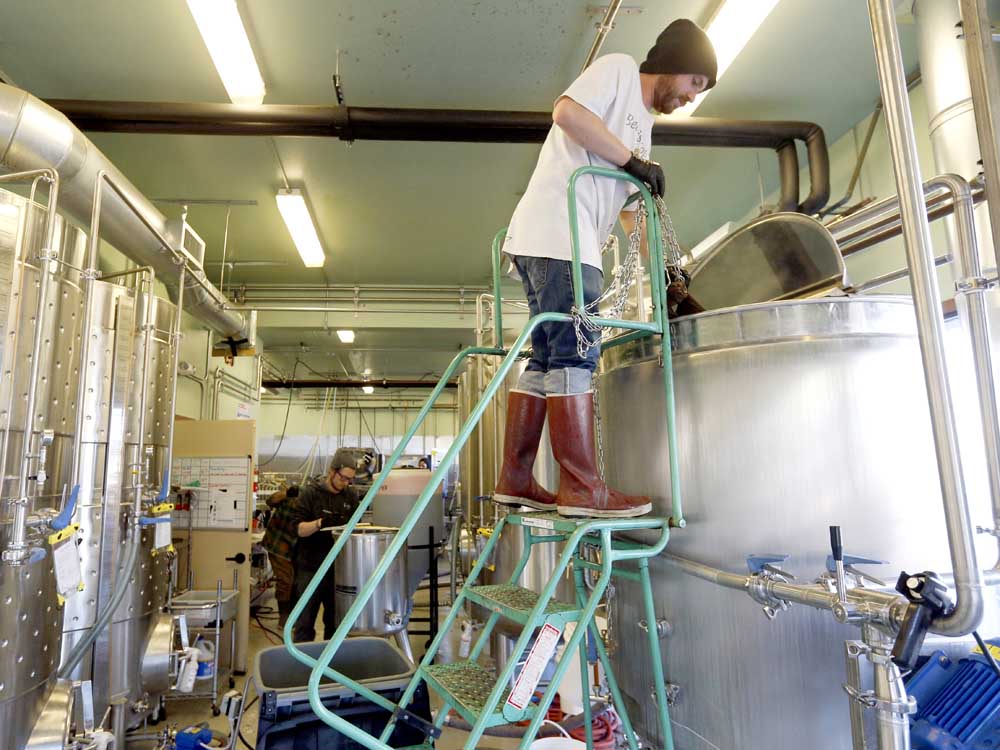Bend’s Humm Kombucha gets big marketing boost
Published 12:00 am Friday, February 5, 2016

- Matthew Anderson removes tea bags from a fermentation tank while working in the Humm Kombucha brewery in 2016. (Bulletin file photo)
Bend-based Humm Kombucha is a well-established brand in the Pacific Northwest and has distribution to stores in approximately 20 states, according to Mike Beshore, project manager for the company.
However, the company wants to expand its sales into new markets and possibly increase its production.
“We want to appeal to the everyday person, up and down the street,” Beshore said.
To accomplish those goals, the kombucha tea-maker worked with Rewire Digital, a Bend consulting firm that focuses on data analysis, on a case study that evaluated which markets would make sense to expand into.
Rewire, founded in Bend in 2014, helps small companies in Central Oregon and beyond better utilize big data and other predictive measurements.
Founder Shane Ketterman said the company recently reached out to local companies, including Humm, to see if they would be interested in putting together a free case study. In Humm’s case, Ketterman said, the project took nearly six weeks and incorporated data from a variety of sources, including Humm’s internal marketing numbers and industry data sets, to build a profile of Humm’s target consumer.
Larger companies, including Deschutes Brewery, have proprietary indexes that provide similar data, but Ketterman said Rewire worked on a case-by-case basis with smaller companies that can’t afford data scientists.
“It gives them a little more than just going with your gut,” Ketterman said. “This actually gave them some statistical relevance.”
Jon Leathem, digital analyst for Rewire, said the analysis looked at the overall health-beverage market, one that has grown significantly over the past decade. In the analysis, Rewire blended data from a variety of sources on Humm’s consumer base to create “The Humm Index,” which predicts how likely it is that people would buy the beverage in a given metropolitan area. The index uses eight variables based on the demographics of each region, including average age, level of education and percentage of population that is physically active.
“There was a very strong correlation between level of physical activity and preference for kombucha,” Leathem said.
Leathem added he could also analyze the data to identify specific locations within those metro areas where it would make sense for Humm to target. Additionally, he said, the list can evolve to incorporate more data as the company expands, providing more and better information for Humm in the future.
Beshore said Humm’s expansion was contingent on the company expanding its production facilities. In January, Humm filed a preliminary application with the city of Bend to convert a 30,000-square-foot building on Brinson Boulevard in northeast Bend into a brewery. Increasing production could be the key for Humm going from a regional kombucha producer to a nationally known one, and would give the company a chance to test Rewire’s analysis.
“When we do have increased production capacity, I think we’re really going to go full bore,” Beshore said. “We’re looking forward to acting on the insights they brought to light.”
— Reporter: 541-617-7818, shamway@bendbulletin.com






